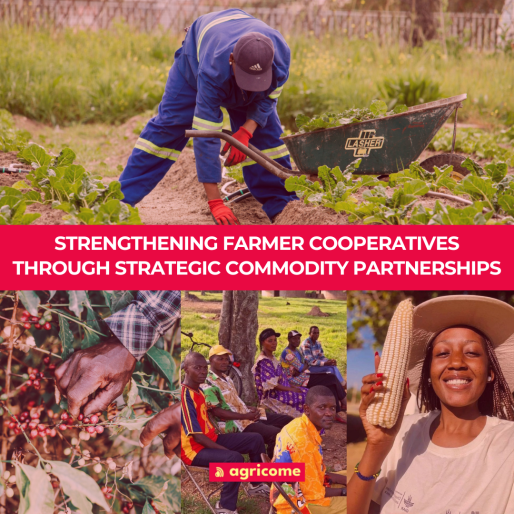Farmer cooperatives are the backbone of agriculture in Africa, empowering smallholder farmers to pool resources, access markets, and improve their livelihoods. However, many cooperatives face challenges such as limited access to finance, poor infrastructure, and weak market linkages. Strategic commodity partnerships—collaborations between cooperatives, private companies, governments, and NGOs —offer a powerful solution to these challenges. By leveraging these partnerships, African farmer cooperatives can unlock their full potential, drive economic growth, and ensure sustainable agricultural development.
Strategic commodity partnerships bring together the strengths of different stakeholders to create value for farmers. These partnerships often focus on high-demand commodities like coffee, cocoa, cashew, and maize, which have significant economic potential in Africa. By aligning the interests of farmers, buyers, and investors, these collaborations can improve productivity, ensure fair prices, and promote sustainable practices.
Success Stories Across Africa
- Coffee Cooperatives in Ethiopia Ethiopia’s coffee sector has thrived thanks to partnerships between cooperatives and global buyers like Starbucks and Nespresso. Through the Coffee and Farmer Equity (C.A.F.E.) In the practice program, farmers receive training on sustainable farming, quality improvement, and access to premium markets. As a result, Ethiopian coffee cooperatives have seen increased incomes and improved livelihoods for thousands of smallholder farmers.
- Cocoa Cooperatives in Côte d’Ivoire In Côte d’Ivoire, the world’s largest cocoa producer, partnerships between cooperatives and companies like Mondelez International and Fairtrade have transformed the sector. Programs like Cocoa Life provide farmers with training, inputs, and access to finance, enabling them to adopt climate-smart practices and improve yields. These initiatives have empowered women farmers and reduced child labor in cocoa-growing communities.
- Cashew Cooperatives in Ghana
Ghana’s cashew sector has benefited from partnerships with organizations like the African Cashew Alliance (ACA) and private processors. By providing cooperatives with technical support, market access, and processing facilities, these partnerships have increased the value of Ghanaian cashews and created jobs in rural areas.
While these successes are inspiring, there are regions and commodities where strategic partnerships are still underdeveloped. For example: - West Africa’s Rice Sector Despite being a staple food, rice production in West Africa faces challenges like low yields and poor processing infrastructure. Partnerships between cooperatives, governments, and private investors could improve access to quality seeds, irrigation systems, and milling facilities, reducing reliance on imports.
- East Africa’s Horticulture Sector East Africa has immense potential in horticulture, but smallholder farmers often struggle to meet international standards. Partnerships with exporters and certification bodies could help cooperatives access premium markets for fruits, vegetables, and flowers.
- Southern Africa’s Livestock Sector
In Southern Africa, livestock farmers face challenges like drought and disease. Partnerships with veterinary service providers, feed manufacturers, and meat processors could enhance productivity and market access for cooperatives.
To replicate and scale up successful partnerships, the following strategies are essential: - Capacity Building provides cooperatives with training on governance, financial management, and sustainable farming practices to enhance their competitiveness.
- Access to Finance Develop innovative financing models, such as blended finance and value chain financing, to support cooperatives in investing in infrastructure and technology.
- Technology Adoption Promote the use of digital tools like mobile apps for weather forecasting, market information, and financial services to empower farmers.
- Policy Support Governments should create enabling policies that encourage private-sector investment in agriculture and support cooperative development.
- Sustainability Focus
Encourage partnerships that promote climate-smart agriculture, biodiversity conservation, and fair trade practices.
Strategic commodity partnerships have the potential to transform African agriculture by strengthening farmer cooperatives and creating sustainable value chains. By learning from successful models and addressing gaps in underdeveloped regions, stakeholders can unlock the full potential of Africa’s agricultural sector. Together, we can build a future where farmer cooperatives thrive, rural communities prosper, and Africa becomes a global leader in sustainable agriculture. Let’s grow stronger together! 🌱🌍
